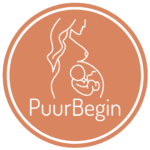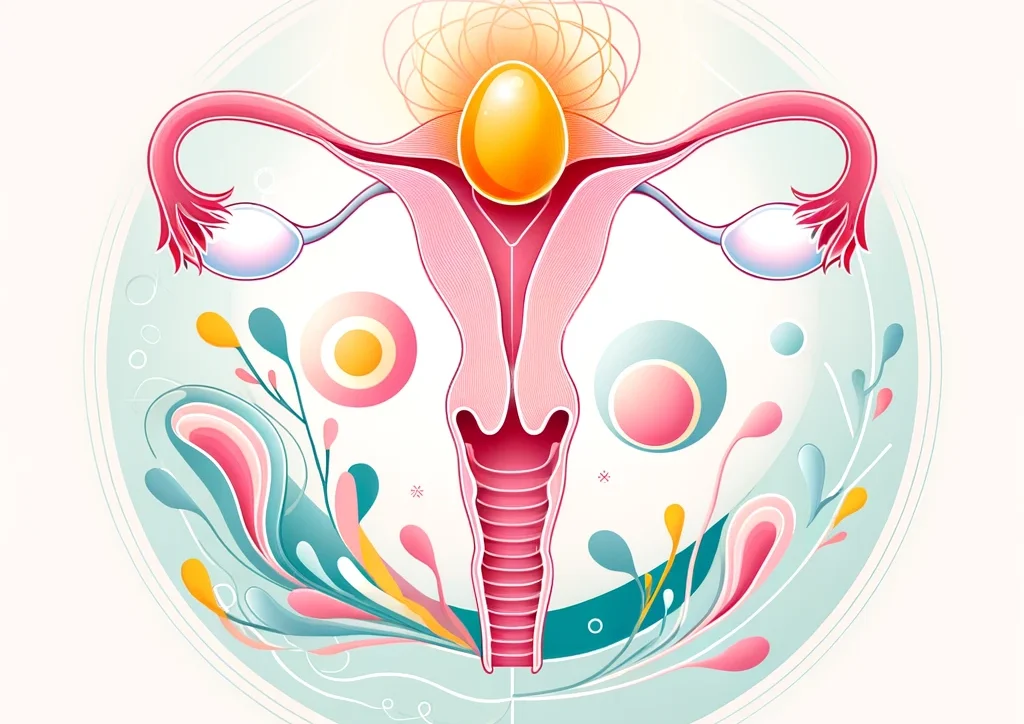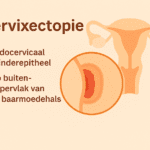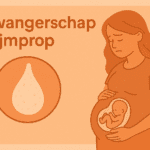Heb je je ooit afgevraagd wat er elke maand in je lichaam gebeurt? Nou, je bent zeker niet de enige! Bij Verloskundigen PuurBegin duiken we graag in de wonderen van het vrouwelijk lichaam en vandaag gaan we het hebben over een superbelangrijk, maar soms mysterieus proces: de ovulatie.
Ovulatie is een sleutelwoord dat je vaak hoort zodra je meer leert over vruchtbaarheid, menstruatiecycli, of als je probeert zwanger te worden. Maar wat is ovulatie eigenlijk? Kort gezegd, het is het moment in de cyclus waarop een volwassen eicel de eierstok verlaat en klaar is voor bevruchting. Klinkt eenvoudig, toch? Nou, er zit eigenlijk heel wat meer achter dit fascinerende natuurlijke proces.
Blijf lezen terwijl we samen door de ins en outs van ovulatie navigeren, van hoe je kunt herkennen wanneer je ovuleert tot waarom het zo’n cruciale rol speelt in jouw algemene gezondheid en welzijn. Dus pak een kopje thee, ga er lekker voor zitten en laten we samen deze reis door het wonder van ovulatie beginnen.
Wat je echt moet weten over ovulatie
Als we het hebben over de menstruatiecyclus van de vrouw, dan is een van de belangrijkste momenten de ovulatie ofwel de eisprong. Dit is het moment waarop een rijpe eicel de eierstok verlaat en op weg gaat naar de baarmoeder. Het begrijpen van dit proces is cruciaal, niet alleen voor vrouwen die zwanger willen worden, maar voor elke vrouw die haar lichaam en haar gezondheid serieus neemt.
Maar wat moet je nu écht weten over ovulatie?
-
- Timing is alles – De ovulatie vindt meestal plaats rond de 14e dag van je menstruatiecyclus, als je uitgaat van een gemiddelde cyclus van 28 dagen. Deze periode wordt ook wel je vruchtbare venster genoemd, omdat de kans op zwangerschap het hoogst is als je in deze dagen geslachtsgemeenschap hebt.
-
- Lichamelijke signalen herkennen – Veel vrouwen ervaren rondom hun ovulatie specifieke symptomen, zoals een lichte pijn in de onderbuik, verhoogd libido of veranderingen in de structuur van het cervixslijm. Door deze signalen te leren herkennen, kun je een beter inzicht krijgen in je menstruatiecyclus.
Natuurlijk varieert de cyclus van vrouw tot vrouw en is het belangrijk om te onthouden dat niet elke cyclus als een klok werkt. Daarom kan het bijhouden van je cyclus op een kalender of via een app een handige manier zijn om meer inzicht te krijgen in je persoonlijke patroon.
| Dag van de cyclus | Signaal / Symptoom | Notities |
|---|---|---|
| 12 | Lichte pijn rechts onderin buik | Eerste signalen van ovulatie |
| 13 | Verhoogd libido | Voel me energieker |
| 14 | Doorzichtig, rekbaar cervixslijm | Teken van maximale vruchtbaarheid |
| 15 | – | Geen specifieke signalen opgemerkt |
Het krijgen van inzicht in je ovulatie en menstruatiecyclus kan ontmoedigend lijken, maar met de juiste informatie en hulpmiddelen kan elke vrouw haar lichaam beter begrijpen. Of je nu probeert zwanger te worden of simpelweg je gezondheid in de gaten wilt houden, kennis over ovulatie is een krachtig instrument in handen van elke vrouw.
Zo herken je je vruchtbare dagen als een pro
Als je bent zoals velen van ons, die hun vruchtbare dagen willen herkennen zonder elke maand een batterij aan ovulatietesten te verslijten, dan hebben we wat handige tips voor je. Allereerst, ken je cyclus. De gemiddelde menstruatiecyclus duurt 28 dagen, maar schommelingen tussen 21 en 35 dagen zijn ook normaal. De ovulatie vindt meestal plaats rond 14 dagen vóór je volgende menstruatie. Een handige tip: houd een cycluskalender bij of gebruik een app. Dit helpt bij het voorspellen van je vruchtbare dagen. Let ook op lichaamssignalen. In de aanloop naar de ovulatie kan je cervixslijm helderder, elastischer en wateriger worden, wat aangeeft dat je in je vruchtbare periode zit.
Bovendien zijn er nog enkele andere tekenen die je kunnen helpen bij het herkennen van je vruchtbare dagen. Deze omvatten een lichte stijging in de lichaamstemperatuur, subtiel en vaak over het hoofd gezien, maar een signaal dat de ovulatie heeft plaatsgevonden. Het bijhouden van je basale lichaamstemperatuur kan hierbij helpen. Andere signalen zijn lichte ovulatiepijn, ook wel bekend als Mittelschmerz, die sommigen ervaren alsof er aan één kant van de onderbuik een klein knijpje wordt gegeven. Het aandachtig luisteren naar deze veranderingen in je lichaam kan je helpen beter afgestemd te raken op je cyclus.
| Dag van de Cyclus | Te verwachten Signaal |
| 12-16 | Verandering in cervixslijm |
| 13-17 | Lichte stijging basale lichaamstemperatuur |
| 14-18 | Ovulatiepijn (Mittelschmerz) |
Door deze natuurlijke lichaamssignalen en veranderingen bij te houden, kun je je vruchtbare dagen als een echte pro leren herkennen. Geef jezelf de tijd om vertrouwd te raken met deze tekens. Ieder lichaam is uniek en het kan even duren voordat je de subtiele hints van jouw lichaam volledig begrijpt. Verloskundigen PuurBegin staat altijd klaar om je hierbij te ondersteunen en adviseren.
Samenvatting
We hopen dat dit artikel je een helder beeld heeft gegeven over wat ovulatie precies is en wat het betekent voor jouw lichaam. Je lichaam is ongelofelijk knap en ovulatie is slechts één van de vele wonderen die het dagelijks voor je verricht. Of je nu probeert zwanger te worden, meer over je menstruatiecyclus wilt leren of gewoon nieuwsgierig bent, kennis over ovulatie is altijd kracht.
Bij Verloskundigen PuurBegin begrijpen we dat elke vrouw uniek is en dat elke cyclus zijn eigen verhaal vertelt. Heb je nog vragen of zorgen over je ovulatie of vruchtbaarheid? Aarzel niet om contact met ons op te nemen. Ons team van ervaren verloskundigen staat klaar om je te ondersteunen en te begeleiden met persoonlijke zorg die bij jou past.
Bedankt voor het lezen en vergeet niet: jouw lichaam is puur en bij elke begin hoort een prachtig natuurlijk proces. Voor nu, blijf luisteren naar de signalen van je lichaam en onthoud dat wij hier zijn om je door elk nieuw begin te loodsen.
Blijf op de hoogte!
Volg ons op social media voor het laatste nieuws en een kijkje achter de schermen bij Verloskundigen PuurBegin in Kampen.
Ontdek de dagelijkse avonturen van onze verloskundigen, waardevolle tips voor aanstaande ouders en inspirerende verhalen uit de praktijk.
Klik op de onderstaande knoppen en blijf verbonden met ons hartverwarmende team!
 |
 |
Hartelijke groet,
Verloskundigen PuurBegin
Adres: Orkestlaan 148, 8265RC Kampen
Telefoon: 085 40 19 095








